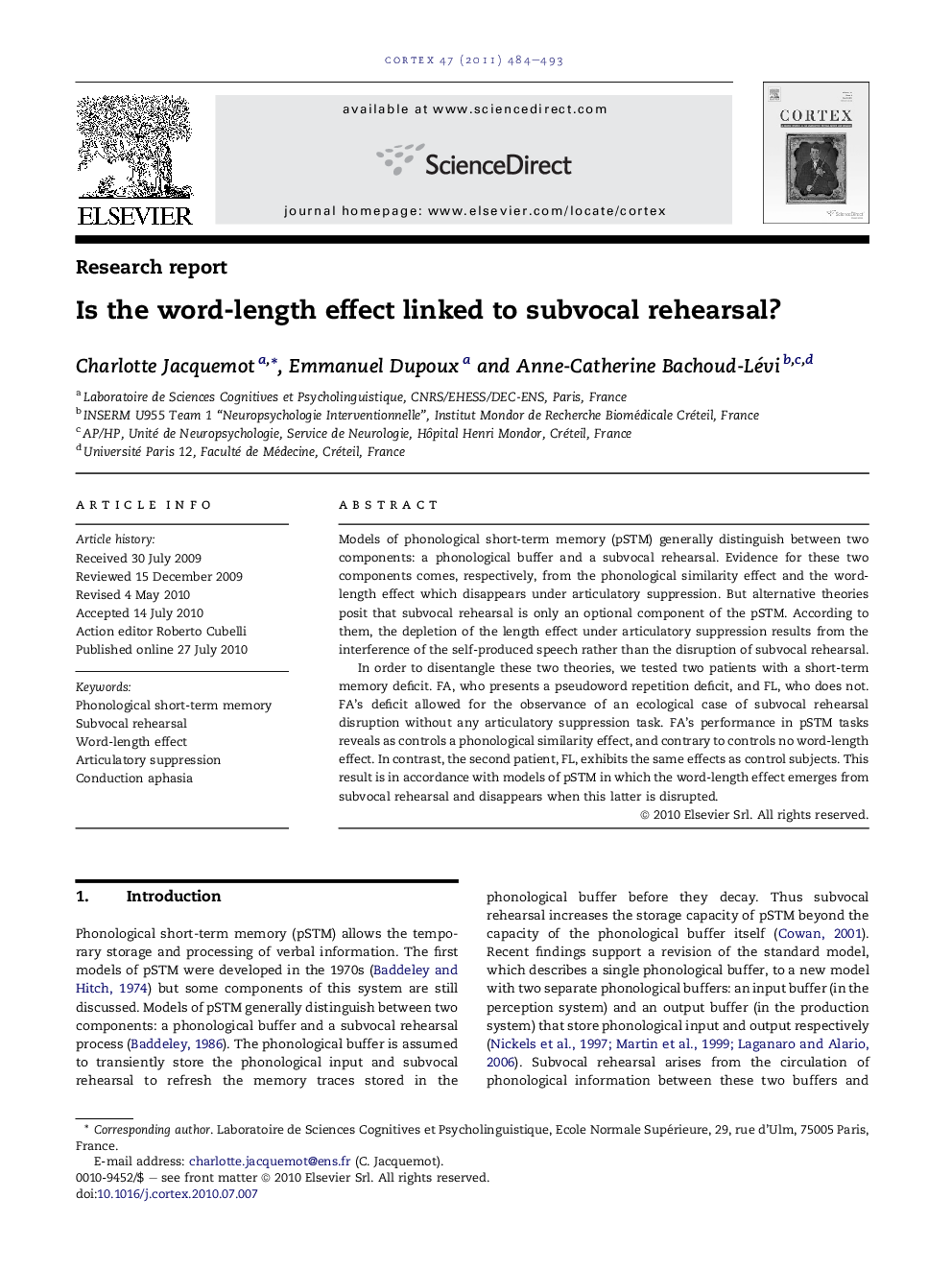| Article ID | Journal | Published Year | Pages | File Type |
|---|---|---|---|---|
| 942443 | Cortex | 2011 | 10 Pages |
Models of phonological short-term memory (pSTM) generally distinguish between two components: a phonological buffer and a subvocal rehearsal. Evidence for these two components comes, respectively, from the phonological similarity effect and the word-length effect which disappears under articulatory suppression. But alternative theories posit that subvocal rehearsal is only an optional component of the pSTM. According to them, the depletion of the length effect under articulatory suppression results from the interference of the self-produced speech rather than the disruption of subvocal rehearsal.In order to disentangle these two theories, we tested two patients with a short-term memory deficit. FA, who presents a pseudoword repetition deficit, and FL, who does not. FA’s deficit allowed for the observance of an ecological case of subvocal rehearsal disruption without any articulatory suppression task. FA’s performance in pSTM tasks reveals as controls a phonological similarity effect, and contrary to controls no word-length effect. In contrast, the second patient, FL, exhibits the same effects as control subjects. This result is in accordance with models of pSTM in which the word-length effect emerges from subvocal rehearsal and disappears when this latter is disrupted.
